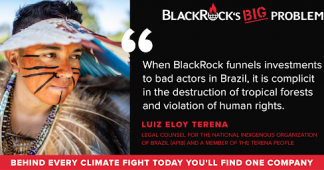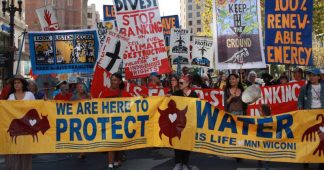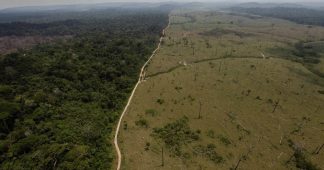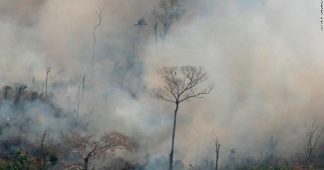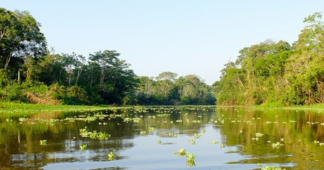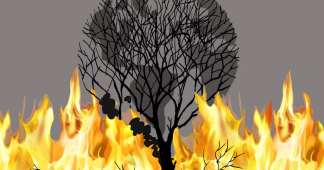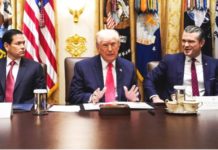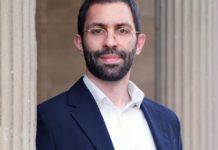Take Action Tuesday @EarthFoodLife
August 27, 2019
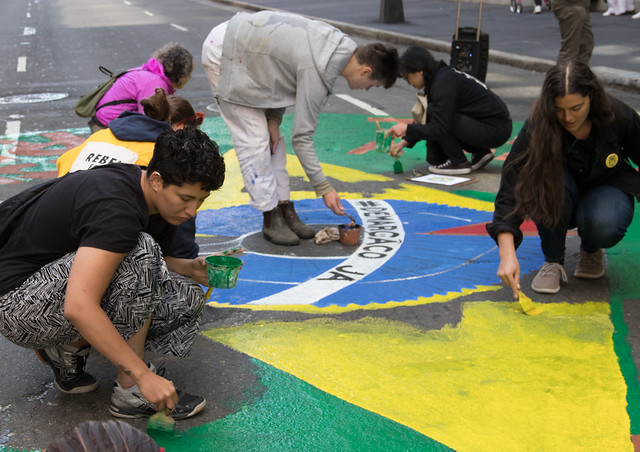
Action Network: BlackRock, the world’s largest investment firm, has more money invested in the fossil fuel and agribusiness industries–the biggest drivers of climate change–than any other company in the world. That means that BlackRock’s portfolio constitutes a huge liability for putting the planet on a path towards runaway climate change. In fact, BlackRock contributes more to climate change than almost any other company on Earth. The Amazon rainforest and its Indigenous inhabitants are under acute threat from BlackRock, which is taking advantage of Brazil’s far-right President Jair Bolsonaro’s removal of environmental barriers to economic activities in the Amazon. And now they will have even more access to deforestation and destruction. Bolsonaro has advocated for the opening of new areas of the Amazon rainforest to agriculture and industry. As a result, BlackRock announced plans to expand its operations in Brazil after Bolsonaro was elected. Moves like this signal strong support for Bolsonaro, whose rhetoric is inspiring violence against Indigenous communities in the Amazon and beyond. As one of the largest investors in Brazil’s agribusiness industry, BlackRock could use its financial clout to curb, not encourage, further forest destruction. It should divest from companies that continue these destructive practices.
>>>Urge BlackRock to stop financing Amazon destruction.
Care2: Trump’s main campaign goal of erecting a border wall along the U.S. Mexico border is not only unnecessary and a bad use of funds—it would also actively harm the environment. The walls that already exist along that border show us just how damaging a more expansive one would be. Borders are not real; they are imaginary lines created by humans to maintain power and hierarchies. Wildlife don’t care about which country says they own a certain piece of land: They live and travel where they need to. And because borders are so arbitrarily drawn with zero consideration for the environment, they wreak havoc on natural habitats. There are already some wall-like structures across the U.S.-Mexico border, and they are causing huge problems. For one thing, birds are literally getting stuck in the structures during migration, while other land-based creatures are hemmed in and prevented from moving around. And animals are not the only ones suffering. Water drainage, protected areas and more are not even being considered before these barriers are placed.
>>>Tell the Trump administration that you oppose the border wall.
WWF: From beaches in Indonesia to the Arctic, plastic is choking our planet. Most plastic becomes trash after a single use. It has contaminated the soil, rivers and oceans. Eight million metric tons of plastic ends up in the oceans every year. They break down into tiny bits of microplastic, small enough to enter our food chain, along with other types of microplastics like those that are released when we wash our clothes. On average, we could be ingesting around five grams of plastic every week—the equivalent weight of a credit card. In fact, we could be consuming, on average, over 100,000 pieces of microplastic every year. That’s approximately 21 grams a month, just over 250 grams a year. Many of us are doing our bit to reduce plastic pollution, but it’s time that governments and businesses took responsibility too.
>>>Urge world governments to introduce a global legally-binding agreement to stop plastics polluting our oceans.
Cause for concern…

- The Amazon is burning because the world eats so much meat (Eliza Mackintosh, CNN)
- Slaughterhouses prey on the most vulnerable humans and nonhumans alike (Ashley Capps, Free From Harm)
- Air pollution can accelerate lung disease as much as a pack a day of cigarettes (University of Washington)
- Rapid coral death and decay, not just bleaching, as marine heatwaves intensify (Cell Press)
- Food insecurity common across U.S. higher education campuses (American Psychological Association)
Round of applause…
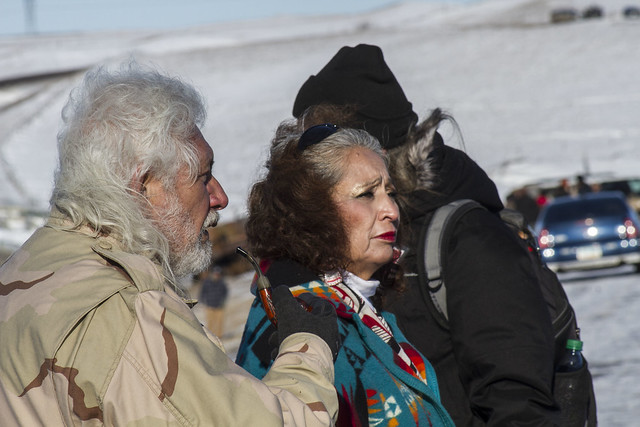
- How the women of Standing Rock are building sovereign economies (Tracy L. Barnett, YES! Magazine)
- I would rather die than have a pig heart transplant (Chas Newkey-Burden, HuffPost UK)
- KFC to hold U.S. trial of vegan ‘chicken’ nuggets (Zoe Wood, The Guardian)
- ‘Survivorman’ Les Stroud’s new rock anthem “One Giant Farm,” featuring Slash, is an environmental wake-up call (JMA Talent) [WATCH]
- Firefighters and paramedics can now legally break windows to rescue pets left in hot and cold cars under a new law in New York (Kate Elizabeth Queram, Route Fifty)
- German circus uses holograms instead of live animals (Jade Small, Educate Inspire Change)
Parting thought…
“What we are doing to the forests of the world is but a mirror reflection of what we are doing to ourselves and to one another.” —Chris Maser, “Forest Primeval: The Natural History of an Ancient Forest” (Oregon State University Press, 2001)
